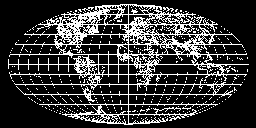- Development-oriented activities:
In 1996, I had the opportunity to be a member of a coordination team
for a literacy-related project in Ghana. The project was organized and
supported by the ASA-Programm of the Carl-Duisberg-Gesellschaft (Berlin)
who also provided introductory seminars to development cooperation in the
preparational phase of the programme. Here is a summary of the project,
its aims and achievements:
Summary of the CDG project Literacy in Ghana ("Alphabetisierung in Ghana") (1996):
The aim of the project was to find strategies towards a standardisation
of Dagbani orthography and to create awareness for orthographic and pedagogical
problems. Dagbani is one of the main languages of Northern Ghana and is
used as a teaching language in schools. Nevertheless the literacy rate
is very low. One of the main difficulties seems to be the lack of communication
between the representatives of various institutions working in the literacy
sector. Therefore a team composed of three german participants and several
lectureres of the Language Centre/University of Ghana (Legon) was
given the task to prepare and organize a meeting where such representatives
would have the occasion to meet and discuss the problems of Dagbani literacy.
The preparations included programme planning, personal visits at government-related
organizations and NGOs, invitations to the conference, practical matters
and the application for funding. During the visits to the different organizations
which are involved in elementary education, adult education and development
of teaching materials, the necessity for cooperation was emphasized. Since
the available funds did hardly cover the expenses for meals, many participants
of the conference had to bear their expenses for transport on their own.
Despite these conditions, most of the invited people came from various
parts of the region. The meeting offered an opportunity to all participants
to discuss their views on Dagbani orthography, some of which proved to
be very controversial. As a result, a committee composed of experts was
elected, the Dagbani Orthography Committee (DOC). Its function is to develop
an improved and standardized version of the spelling system. I am a consulting
member of this group. We plan to present the proposals which were collected
during the last year at another conference in November 1997. We hope to
find an "official" solution which can be implemented in literacy teaching
after the conference.
The project is the beginning of a development towards unification of
different spelling conventions. As a contribution in favour of one particular
group of the society in Northern Ghana, it can be regarded as partial improvement
of the education system. It should be noted that the project was performed
with a minimum of financial support and a maximum of cooperation and communication
between the actors in the planning team.
A detailed version of the report will be available soon as a postscript
file on this page.
![]()

Although the study of linguistics does not automatically mean that
a linguist "can speak many languages", it is sometimes unavoidable to learn
more about them. I had many opportunities to attend seminars ABOUT other
languages, such as Korean, Chinese or Arabic. In addition, I actually learnt
how to COMMUNICATE in some foreign languages, although my knowledge of
these glosses is sometimes rather reduced due to lack of practice. Here's
a summarizing table ....
 Foreign language knowledge:
Foreign language knowledge:
(grouped into four different categories from fluent to theoretical
knowledge)
1 (Fluent): English, Italian.
2 (Basic communication ability): Spanish, French, Japanese, Dagbani.
3 (Weak communication ability): Portuguese, Indonesian, Russian.
4 (Structural knowledge on grammar only): Arabic, Chinese, Korean.
Papers / Manuscripts: (These are more or less
the output of the project mentioned above)
